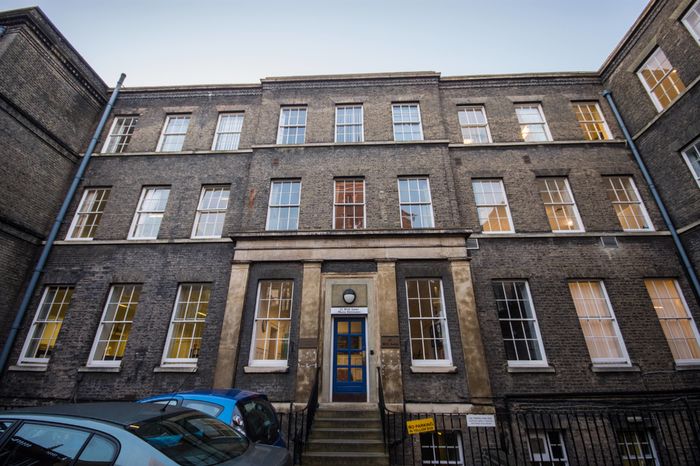The new SU is failing students
Lara Brown writes on the controversy over the Student Union’s plans for online teaching, and what this tells us about its institutional failings.

Two weeks ago (at the time of writing) I emailed the Cambridge Students’ Union for a comment on their campaign for the university to move all non-essential teaching online. I wanted to know about their consultations with JCRs and what had motivated their polarising decision. Despite the fact that SU sabbatical officers are paid to respond to queries like mine, I still haven’t heard back. I was never optimistic anyway, as I am still waiting for a response to an email sent last year about another matter.
I am one of the 20,000 students whom the SU purports to represent. I’ve never felt this let down by any other professional institution. In my time at Cambridge, I’ve watched them dramatically mismanage an election, tell disabled students not to access resources during the strikes, and attempt to restrict access to mental health support. Thankfully the SU pulls off more U-Turns than the current government but, like the government, their credibility lies in tatters.
Which brings us to their recent call ‘for all non-essential teaching to be moved online, acknowledging that for as long as the University commits to face-to-face teaching as the preferred mode of delivery, it will neglect to adequately develop the online teaching which is currently crucial to students’ education. Another online term would be terrible for students’ mental health, and for our academic experience at Cambridge overall, particularly given how capricious Eduroam is.
Last year a referendum was held with weeks of campaigning and the participation of 4,289 voters on ‘NewSU’. But on the fundamental question of how students will be taught this year, the SU felt that a similar level of consultation is not necessary.
“This isn’t the first time the SU has failed to represent the interests of its students”
They may not have responded to my email, but they did, at least, try to justify their stance in public. Online teaching, they claimed, limits the risk of infection. Still, my in-person supervisions have all been conducted safely. I’ve worn a mask, sat with windows open and proper social distancing in place, and been doused with industrial quantities of hand gel. Had I chosen to shield in Cambridge, that would have been entirely possible: all of my supervisors have offered me the option to go online. So why did the SU feel the need to promote a blanket policy? Surely risk calibration should be the prerogative of the individual.
The SU also cited the threat to supervisors. But the current university policy on online teaching permits any supervisor to teach virtually should they desire. Furthermore, the health of supervisors at Cambridge falls under the jurisdiction of the UCU. The SU isn’t a universal union existing to defend anyone remotely associated with Cambridge. They exist to promote student interests and would do well to remember that.
After announcing their push for online learning, the SU took the radical action of actually consulting JCRs and MCRs. Having spoken to ’almost half’ of JCRs and MCRs (leaving over half of Cambridge students unrepresented) the SU backtracked on their position. They adopted a sensible and important push for opt-in online teaching. This is the exact measure that the SU should have pushed for all along - it keeps students safe and allows vulnerable people to avoid risks. The change to the motion was ultimately passed as a friendly amendment - but in reality, it’s far more of a U-turn.
While the SU did ultimately get it right, it strikes me as very odd that they didn’t consult JCRs before launching their initial pledge. This isn’t the first time the SU has failed to represent the interests of its students. Undergraduates and postgraduates were failed during the strikes last year. While I supported UCU striking staff, the SU failed to provide adequate advice to students. A statement was issued (and later retracted) urging all students to reschedule appointments at the Disability Resource Centre and University Counselling Service. The SU should not have taken such a politicised stance towards the strikes. They are not responsible for the wellbeing of lecturers: they are not the UCU. The SU ought to have focused on limiting disruptive or aggressive picketing and ensuring that every student had access to mental health support throughout the strike period. It’s a shame they couldn’t resist role-playing as Arthur Scargill.
The SU is broken. No surprise that last year 496 people voted for Mimi Nandhla and her promise to abolish it. I fear it is beyond repair, and, like Mimi Nandhla, I wish to see it either abolished or replaced by a more competent body that bothers to do its job of promoting student interests. Sadly I can’t see either of those things happening. Instead, it’s crucial that the SU centres JCRs and MCRs in their decision-making processes. The SU needs to work harder to represent its students and to do so they must actually ask us what we think.
 Features / Should I stay or should I go? Cambridge students and alumni reflect on how their memories stay with them15 December 2025
Features / Should I stay or should I go? Cambridge students and alumni reflect on how their memories stay with them15 December 2025 News / Cambridge study finds students learn better with notes than AI13 December 2025
News / Cambridge study finds students learn better with notes than AI13 December 2025 News / Dons warn PM about Vet School closure16 December 2025
News / Dons warn PM about Vet School closure16 December 2025 Comment / The magic of an eight-week term15 December 2025
Comment / The magic of an eight-week term15 December 2025 News / News In Brief: Michaelmas marriages, monogamous mammals, and messaging manipulation15 December 2025
News / News In Brief: Michaelmas marriages, monogamous mammals, and messaging manipulation15 December 2025









